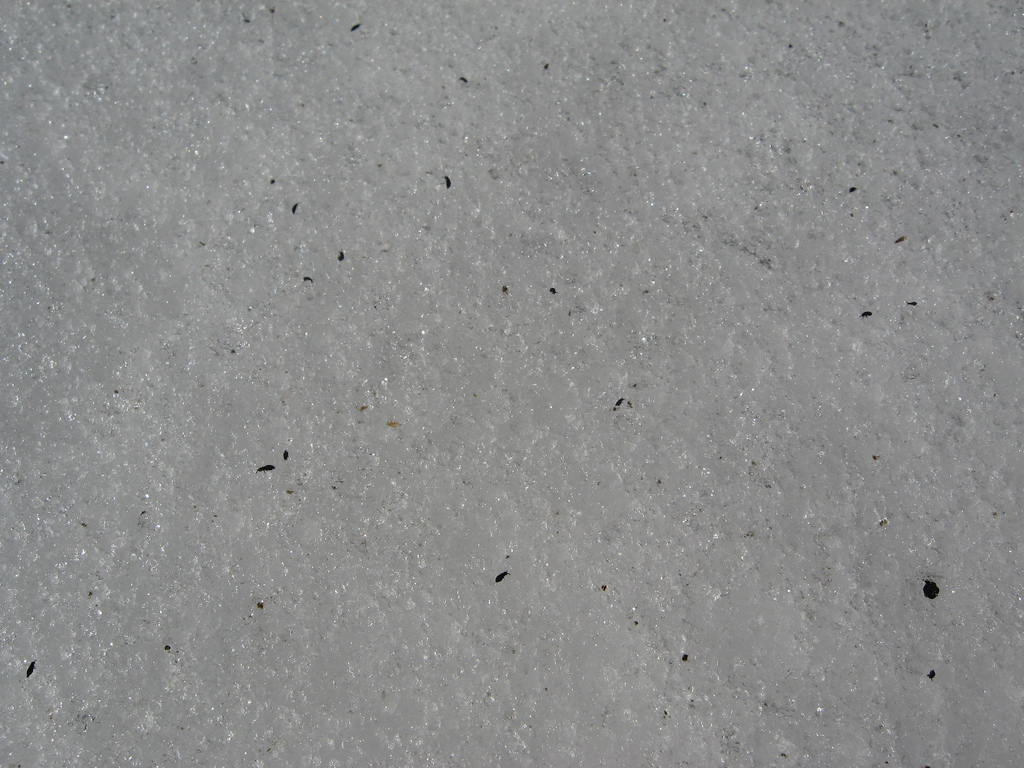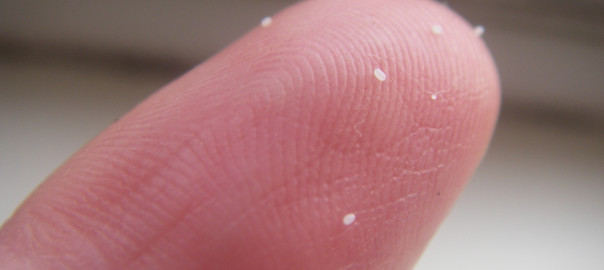Understanding Your Enemy
They say that knowledge is power, and in the case of controlling flea infestations and preventing fleabites, understanding everything you can about the species and how it reacts to certain environments, chemicals, and natural treatments is indeed a powerful thing.

Fleas on white carpet by Herzogbr
Additionally, you should learn all you can about the various treatments, such as what is in them, what poison control methods you should know in case you or someone at home gets sick, and what alternatives there may be that will work just as well, if any are available.
Facts you didn’t know about fleas:
A flea can adapt to its environment quickly. That means whether indoors or out, hot or cold, dry or moist, a flea can probably survive. In fact, fleas are very similar to cockroaches in every way, except that they aren’t cockroaches.
Infestation Numbers: one way fleas are similar to roaches is with their numbers. Every flea you find on your pet or on the carpet guarantees that there are at least 50 more somewhere else in your home. While this sounds gruesome, it is quite true, and adds to the reason they are so darned hard to get rid of in the home. Unless you take extreme measures, you simply cannot kill them all.
Growing Numbers: Another way fleas are similar to roaches is in how they reproduce. During their lifespan of about 3 months (90 days) fleas can reproduce once a day, for a total of 80 days, laying at least 50 eggs every time.
What’s worse is that during the course of their lifecycle, after breeding for about 75 days , you’ll wind up with about 4000 – 5000 eggs from one single flea. Multiply that by the multiple fleas you can’t see for every one that you can, and you have a potential massive infestation on your hands. The number of fleas a home has greatly increases with the number of pets that live in the home.
We’re talking hundreds of thousands of fleas potentially, or even in the millions for homes with multiple pets living there. the larger numbers is another reason it is difficult to control flea reproduction.
Hiding the Numbers: Fleas hibernate, and they can survive for up to a year in this natural state, which means that even if you think you got rid of the infestation, you probably didn’t and you will likely find new fleas after about 3 months, even though you took all the proper precautions to prevent them from infesting. You can do little about this except to retreat your home.
Further Your Fight Against Fleabites and Infestations
Learning why the parasites are so darned difficult to kill can keep fleas from infesting your home and biting you and your pets. Knowledge is and always has been the best weapon against fleas and fleabites.
While controlling a flea infestation will take time using natural or alternative methods, it might be better in the end for the sake of your health and that of your family and pets.

